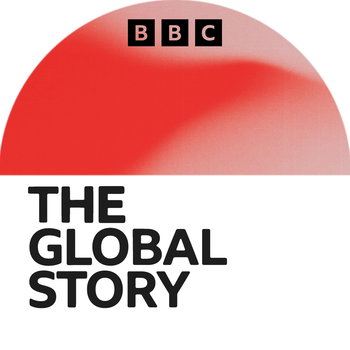
Paul von Hindenburg
Loading player...
Melvyn Bragg and guests discuss the life and role of one of the most significant figures in early 20th Century German history. Paul von Hindenburg (1847-1934) had been famous since 1914 as the victorious commander at the Battle of Tannenberg against Russian invaders, soon burnishing this fame on the Western Front and Hindenburg was to claim he would have won there too, if enemies at home had not 'stabbed Germany in the back'. He won Germany’s Presidential election twice during the Weimar Republic, as a candidate of national unity and, while he gained his second term as a ‘stop Hitler’ candidate, President Hindenburg was to appoint Hitler as Chancellor and transfer some of his charisma onto him – a move so disastrous that Germans were later to ask if the myth of Hindenburg had always been an illusion.
With
Anna von der Goltz
Professor of History at Georgetown University, Washington DC
Chris Clark
Regius Professor of History at the University of Cambridge
And
Colin Storer
Associate Professor in Modern European History at the University of Warwick
Producer: Simon Tillotson
Reading list:
William J. Astore and Dennis E. Showalter, Hindenburg: Icon of German Militarism (Potomac Books, 2005)
Benjamin Carter Hett, The Death of Democracy: Hitler's Rise to Power (William Heinemann, 2018)
Andreas Dorpalen, Hindenburg and the Weimar Republic (first published 1964; Princeton University Press, 2016)
Jürgen W. Falter, 'The Two Hindenburg Elections of 1925 and 1932: A Total Reversal of Voter Coalitions' (Central European History, 32/2, 1990)
Peter Fritzsche, 'Presidential Victory and Popular Festivity in Weimar Germany: Hindenburg's 1925 Election' (Central European History, 32/2, 1990)
Larry Eugene Jones, Hitler Versus Hindenburg: The 1932 Presidential Elections and the End of the Weimar Republic (Cambridge University Press, 2016)
Martin Kitchen, The Silent Dictatorship: The Politics of the German High Command under Hindenburg and Ludendorff, 1916-1918 (first published 1976; Routledge, 2021)
John Lee, The Warlords: Hindenburg and Ludendorff (Weidenfeld & Nicolson, 2005)
Frank McDonough, The Weimar Years: Rise and Fall, 1918-1933 (Apollo, 2023)
Nadine Rossol and Benjamin Ziemann (eds.), The Oxford Handbook of the Weimar Republic (Oxford University Press, 2022)
Richard Scully, 'Hindenburg: The Cartoon Titan of the Weimar Republic, 1918-1934' (German Studies Review, 35/3, 2012)
Colin Storer, A Short History of the Weimar Republic (Revised Edition, Bloomsbury, 2024)
Anna von der Goltz, Hindenburg: Power, Myth and the Rise of the Nazis (Oxford University Press, 2009)
Alexander Watson, Ring of Steel: Germany and Austria-Hungary at War, 1914-1918 (Penguin, 2015)
J. W. Wheeler-Bennett, Hindenburg: The Wooden Titan (first published 1936; Macmillan, 1967)
In Our Time is a BBC Studios Audio Production
With
Anna von der Goltz
Professor of History at Georgetown University, Washington DC
Chris Clark
Regius Professor of History at the University of Cambridge
And
Colin Storer
Associate Professor in Modern European History at the University of Warwick
Producer: Simon Tillotson
Reading list:
William J. Astore and Dennis E. Showalter, Hindenburg: Icon of German Militarism (Potomac Books, 2005)
Benjamin Carter Hett, The Death of Democracy: Hitler's Rise to Power (William Heinemann, 2018)
Andreas Dorpalen, Hindenburg and the Weimar Republic (first published 1964; Princeton University Press, 2016)
Jürgen W. Falter, 'The Two Hindenburg Elections of 1925 and 1932: A Total Reversal of Voter Coalitions' (Central European History, 32/2, 1990)
Peter Fritzsche, 'Presidential Victory and Popular Festivity in Weimar Germany: Hindenburg's 1925 Election' (Central European History, 32/2, 1990)
Larry Eugene Jones, Hitler Versus Hindenburg: The 1932 Presidential Elections and the End of the Weimar Republic (Cambridge University Press, 2016)
Martin Kitchen, The Silent Dictatorship: The Politics of the German High Command under Hindenburg and Ludendorff, 1916-1918 (first published 1976; Routledge, 2021)
John Lee, The Warlords: Hindenburg and Ludendorff (Weidenfeld & Nicolson, 2005)
Frank McDonough, The Weimar Years: Rise and Fall, 1918-1933 (Apollo, 2023)
Nadine Rossol and Benjamin Ziemann (eds.), The Oxford Handbook of the Weimar Republic (Oxford University Press, 2022)
Richard Scully, 'Hindenburg: The Cartoon Titan of the Weimar Republic, 1918-1934' (German Studies Review, 35/3, 2012)
Colin Storer, A Short History of the Weimar Republic (Revised Edition, Bloomsbury, 2024)
Anna von der Goltz, Hindenburg: Power, Myth and the Rise of the Nazis (Oxford University Press, 2009)
Alexander Watson, Ring of Steel: Germany and Austria-Hungary at War, 1914-1918 (Penguin, 2015)
J. W. Wheeler-Bennett, Hindenburg: The Wooden Titan (first published 1936; Macmillan, 1967)
In Our Time is a BBC Studios Audio Production


